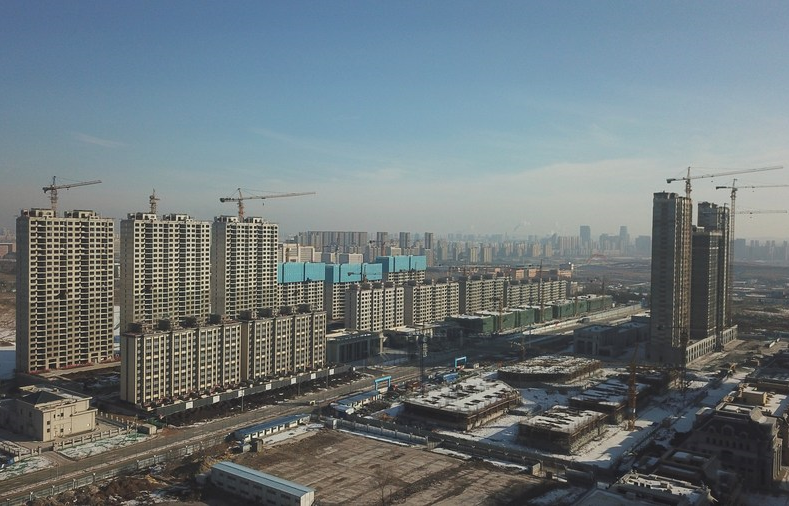BEIJING, Jan. 16 (Xinhua) -- China's home prices in 70 large and medium-sized cities continued an easing trend in December 2022, although price movements diverged, the National Bureau of Statistics (NBS) said Monday.
In December, 55 of the 70 cities saw a month-on-month drop in new home sales prices, compared with 51 in November. A total of 63 cities witnessed a decrease in resale home prices, up from 62 in the previous month.
New home prices in four first-tier cities -- Beijing, Shanghai, Shenzhen, and Guangzhou -- remained flat from the month before, reversing the 0.2-percent drop registered in November, the NBS data showed.
New home prices in 31 second-tier cities decreased 0.3 percent month on month, widening 0.1 percentage points from November, while 35 third-tier cities saw a month-on-month decline of 0.3 percent, the same as November.
Prices of resale homes in the four first-tier cities decreased 0.5 percent, month on month. Both the prices in second-tier and third-tier cities edged down 0.4 percent month on month during the period.
In a year-on-year comparison, new home prices in the four first-tier cities rose 2.5 percent in December, the same growth recorded the previous month, while resale house prices in these cities climbed 0.6 percent.
China's property market, a pillar industry of the economy, has gone through a tough year in 2022, pounded by factors such as COVID-19 resurgences, dented market confidence, and shrinking demand.
Policymakers have rolled out a flurry of supportive measures to shore up the sector. Last November, China's financial authorities issued a guideline encouraging commercial banks to grant loans to acquire real estate projects in a prudent and orderly manner.
In addition, China announced earlier this month that it would put in place a dynamic mechanism, allowing cities to adjust the lower limit for the first-home mortgage rates based on the trend of their property prices, another boost for the sector.
China will promote the steady development of the property market, ensuring timely deliveries of pre-sold housing and meeting the reasonable financing demand of the sector, according to the annual Central Economic Work Conference held last December.
"Market confidence will be bolstered by the government's stronger support at both supply and demand sides, especially those in facilitating financing for property developers," Wen Bin, chief economist with China Minsheng Bank, said in a co-authored research note.
Looking into 2023, Wen believes that the real estate market will firm up quicker, with slower investment decline and less financial risk.
Deng Haiqing, the chief investment officer of AVIC Fund Management Co., Ltd., also expressed optimism about China's real estate market, expecting the pent-up housing demand to release in 2023.
Deng said that demand for home ownership, improved housing conditions, and elderly-care housing would significantly boost real estate consumption.




 A single purchase
A single purchase









